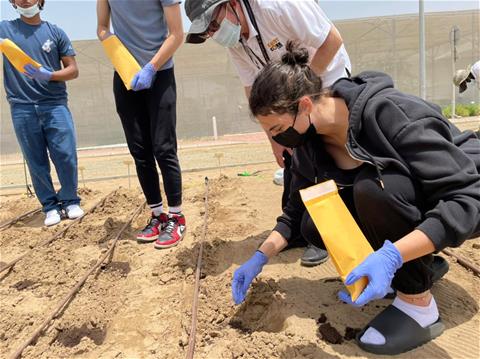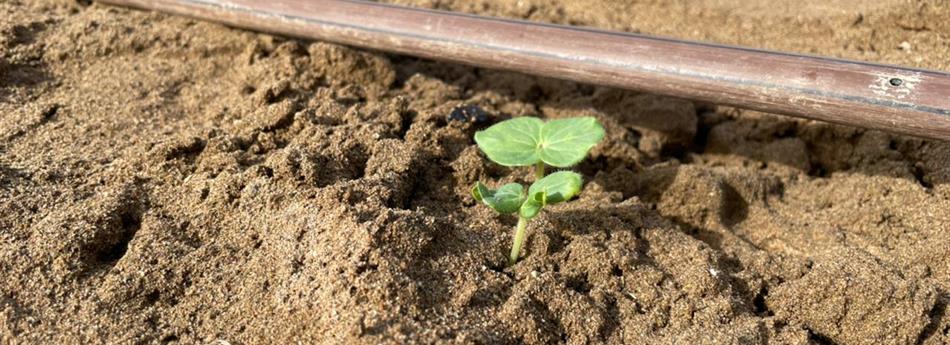A new project at the KAUST Core Labs is allowing students at the KAUST Garden Secondary School (GSS) to test different cultivars of okra (Abelmoschus esculentus) on KAUST research fields. The project was coordinated by the Plant Growth Core Lab and is another example of how the Core Labs serve not only research at KAUST, but the community as a whole.
One of the first impressions KAUST gives to people on campus is the importance of community. More than three quarters of the KAUST community come from overseas, and KAUST understands that the integration of all these people is critical for the success of the university. Part of this effort includes educational programs between the university and primary and secondary schools on campus, which teach more than 1300 children annually.
“The university is trying to find a connection with the school. There’s a big push,” said Dr. John Danaher, a science teacher at the GSS. “On our end, Dr. Emma Nason has been leading the way.”
Most of these connections involve scientists giving talks at KAUST schools, but opportunities for students to be engaged experimentally are far less frequent.
Danaher especially has been developing ways to make his students into active scientists rather than passive listeners and recognized that his best partner would be the KAUST Core Labs. While the Core Labs serve to advance research and innovation at KAUST, the Kingdom of Saudi Arabia, and the world, that service includes training future researchers and innovators, be it students across the Kingdom or those at GSS.
To get the project moving, Danaher was introduced to Plant Growth Core Lab Lead Scientist, Dr. Angelo Gallone, who had only joined KAUST a few weeks prior to the meeting and like Danaher holds a Ph.D. in plant science.
“He was incredibly friendly, helpful and enthusiastic,” said Danaher about Gallone.
Even this praise may undersell the effort Gallone and the whole Plant Growth Core Lab team have made to provide GSS the technical advice, land, labour and materials needed for planting and maintaining the okra.

The Plant Growth Core Lab has been expanding greatly in the past year, incorporating automation into its services and doubling the size of its open field site. That provided an opportunity to give a small 15x8 m2 plot of land for the okra, but also added to a busy team more responsibility.
“It’s extra work for us,” admitted Gallone. But the whole team was on board and happy to take on the challenge. “If I didn’t get support from the team, I couldn’t do it."
The experiment involves testing five different varieties of okra in extreme conditions, such as high sand content in the soil, salinity in the air by the Red Sea, and high temperature ubiquitous to all of Saudi Arabia. The students are determining fundamental parameters such as germination rates, plant height and number of leaves.
From the perspective of the GSS, the collaboration also teaches the students responsibility and even posterity.
“This piece of land teaches the students to take ownership. In many other projects, they are just observers,” said Ben Wylie, another GSS teacher involved in the project. Plus, because the students will be graduating next year, “we want this knowledge to trickle down so that the Grade 12 students teach the Grade 11 students how to manage the plot.”
As for Gallone, he is happy to proselytize plant science, even if the project is not directly related to his responsibilities at the Plant Growth Core Lab.
“Apart from research, I have a teaching background. And everything related to plants is exciting to me,” he said.

